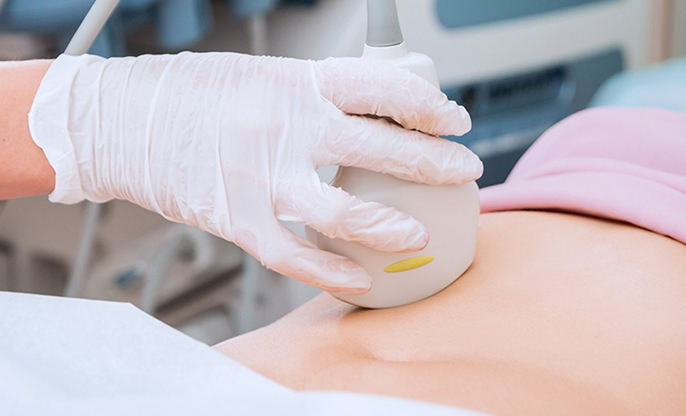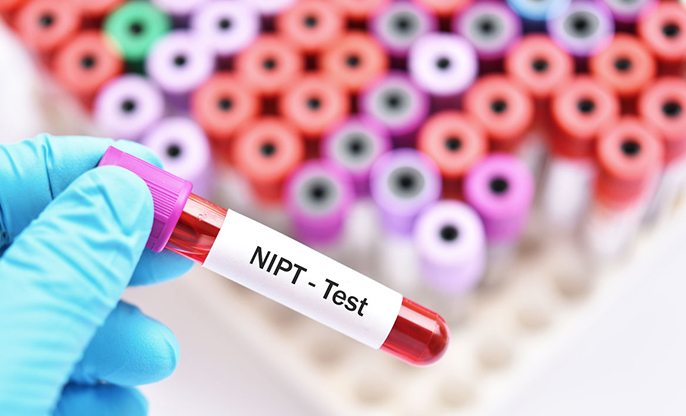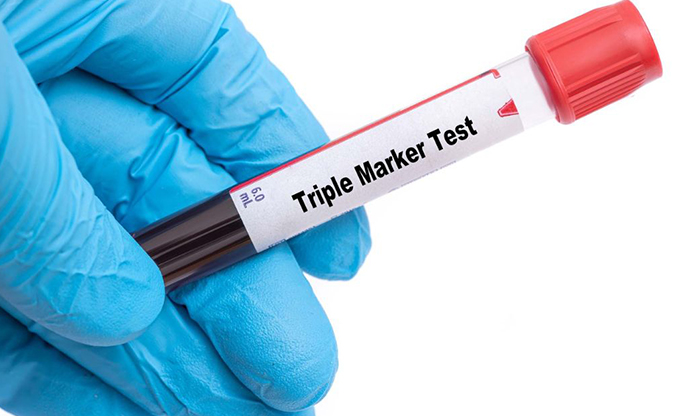
Are you planning a pregnancy? Prepare yourself for the "nuchal translucency" screening test advised during the first trimester of pregnancy. The test is recommended to assess the risk of certain congenital and birth disabilities.
What is the "Nuchal translucency" test?
Nuchal translucency" is a screening test carried out in the 11 and 14 weeks of pregnancy. The screening involves:
- measuring the fluid-filled
area at the back of the neck of the unborn baby
- Measuring the thickness of the skin folds at the back of the baby's neck is called the nuchal fold.
The test is done through ultrasound and assesses the risk of birth defects that can occur due to chromosomal abnormalities, e.g., Down syndrome, Edwards syndrome, Patau syndrome, etc. Thus, screening hints if there is a potential risk of a congenital disability.
Once the thickness of the nuchal fold is measured, it can determine whether the fetus faces a risk for congenital complications. The screening is not a diagnostic test but can help identify "At risk" pregnancies to some extent. The ultrasound scan measures the thickness of the nuchal fold, and the measurement calculates the risk of certain birth disabilities that can show up in the child due to chromosomal abnormalities.
Risks and benefits of Nuchal translucency:
Testing is non-invasive and is generally safe for the unborn child. There is no radiation exposure during the screening, though a small percentage of risk and a slight chance of miscarriage and infection is possible in the process, the same as in every test.
Why should the screening be done?
The test is a good marker to identify pregnancies threatened by birth defects. It assists the healthcare worker in making informed decisions and taking adequate steps regarding the pregnancy. Further testing can be done to ensure the safety and health of the mother and child.
Who should get the test done?
Generally, women over 35 years are advised to undergo an NT scan to assess the chances of chromosomal abnormalities. However, any pregnant woman can choose to have an NT scan because it provides valuable and vital information about the baby's health and well-being.
What happens if the nuchal fold is thick and there is extra fluid?
A small amount of fluid behind the nuchal fold is normal. Still, if the fluid is in excess and the nuchal fold is thicker than it should be, there are chances of a chromosomal abnormality, cardiac defects, or genetic variants.
Usually, doctors also keep the mother's age in mind and conduct a blood test to increase the sensitivity and efficacy of the screening. If the blood test is done, then the screening is called the Combined Nuchal Translucency scan.
But, many times, women with abnormal nuchal screening results have given birth to normal and healthy babies. That means the baby may or may not have a chromosome-related problem besides the abnormal test results.
The fact is, statistically, there may be a complication, and it needs to be looked into though novices like us should pass no judgment after seeing the results. Doctors normally advise a Harmony test to obtain a more accurate result after the Nuchal screening test. You do not have to worry at any stage. Leave yourself to the capable hands of the Obstetrician. The measurements and further testing is his job, as he wants the best for the mother and her child!







